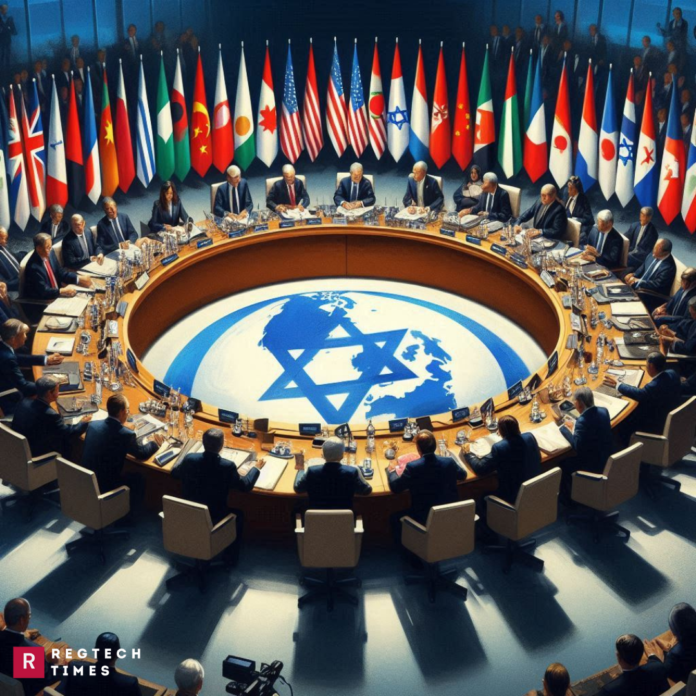The G20 summit set to take place in Rio de Janeiro on November 18th and 19th will address several key global issues. Among the most pressing is the ongoing conflict between Israel and Palestine, particularly the situation in Gaza. More than 50 countries have called for the International Court of Justice (ICJ) to take action, labeling Israel’s actions in Gaza as genocide. This conflict represents a significant challenge for Brazil, which is currently chairing the G20 group, as the country tries to balance the concerns of both Israel’s supporters and its critics within the group.
The Devastating Impact of the Gaza Conflict
The violence in Gaza has resulted in a catastrophic loss of life. According to reports from the United Nations, by early November, at least 43,469 people had died in the ongoing Israeli military actions. These deaths are mostly civilian casualties, with the UN’s High Commissioner for Human Rights indicating that nearly 70% of these deaths were women and children. The violence has escalated throughout the year, with the first six months of the Israeli offensive accounting for thousands of these deaths. The toll on the population is compounded by the humanitarian crisis, with the Gaza Strip facing severe shortages of food, water, and medical supplies.
Despite global condemnation, including from countries within the G20, Israel has continued its military actions. The situation in Gaza is not an isolated case; Israel has also extended its military operations to Lebanon, Syria, and Iran, causing further instability in the region. These events have sparked a deep division within the G20, with countries like South Africa, Brazil, Mexico, Russia, and Turkey criticizing Israel’s actions, while the United States, the United Kingdom, and Germany stand firmly behind Israel.
Brazil’s Leadership and Diplomatic Tensions
Brazil, under President Luiz Inácio Lula da Silva, has taken a strong stance against the violence in Gaza. The Brazilian government has condemned Israel’s actions as genocide, leading to heightened tensions between Brazil and Israel. This conflict has been further complicated by diplomatic gestures, including Brazil recalling its ambassador from Israel earlier in the year. However, despite this vocal criticism, Lula has resisted calls from Palestinian advocacy groups to sever diplomatic ties with Israel altogether. These groups have pushed for stronger actions, such as breaking off diplomatic relations, but Brazil continues to maintain a delicate balance in its foreign policy.
Lula has positioned Brazil as a leader of the Global South, using its chairmanship of the G20 to push for a reform of the United Nations Security Council. Brazil aims to advocate for the interests of developing countries and push for stronger international action against Israel’s offensive. The Brazilian government sees the G20 summit as an opportunity to assert itself in global diplomacy and challenge the power dynamics that have historically sidelined the interests of the Global South.
While Brazil remains an outspoken critic of Israel, it also faces the challenge of managing its relationships with the other G20 members. The group, which represents 80% of the global economy, is divided on the issue. Countries like the United States have pledged billions of dollars in military support to Israel, making it clear that they stand firmly behind the Israeli government. On the other hand, countries like South Africa and Saudi Arabia have taken a strong stance against Israel, pushing for a solution that includes the creation of a Palestinian state.
The Role of Global Powers and the War Industry
The conflict in Gaza has also highlighted the role of major global powers in the region. The United States, as Israel’s most significant ally, has provided substantial military and financial support. In response to the escalating violence, the US committed $8.7 billion in aid to support Israel’s military offensive. This funding has been used for air defense systems and critical military purchases. The US’s involvement has been pivotal in preventing a ceasefire, as American veto power has blocked attempts at halting the violence, including proposals put forward by Brazil.
The UK has also played a controversial role, with the government suspending certain arms exports to Israel after the violence in Gaza intensified. Despite this, Israel continues to receive support from its allies, particularly in the military-industrial sector. In Brazil, there was a plan to purchase armored vehicles from the Israeli company Elbit Systems, but this was called off in light of public pressure. Many activists and organizations supporting Palestine have criticized Brazil’s actions as insufficient, calling for a more robust response.
Meanwhile, Saudi Arabia has also taken a strong position on the conflict. While the country had previously been in negotiations with the US to normalize relations with Israel, these talks were suspended following the escalation of violence in Gaza. Saudi Arabia has reiterated its stance that any reconciliation with Israel should be contingent on the creation of a Palestinian state, a position that aligns with the broader sentiment in much of the Arab world.
The division within the G20 reflects a broader global disagreement over how to handle the Gaza conflict. While many Western nations remain aligned with Israel, countries in the Global South, especially in Africa and Latin America, have been vocal in their opposition to the ongoing violence. This divergence of opinions will undoubtedly make for a tense and complex discussion at the upcoming G20 summit, as Brazil works to maintain its leadership role while navigating the deeply divided political landscape.
As the G20 gathers in Rio, the situation in Gaza remains dire. With tens of thousands of lives lost and the humanitarian crisis deepening, the summit will be an opportunity for global leaders to either unite in finding a solution or continue to see the world remain divided on one of the most significant conflicts of our time.


